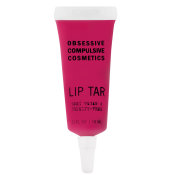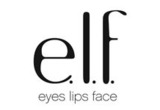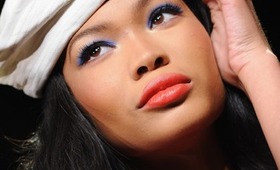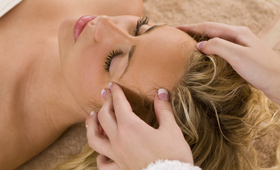It seems that we’ve entered a new age in the world of makeup. These days finding vegan cosmetics is easier than ever before, thanks to numerous new beauty companies working hard to create a rainbow of animal-conscious products that don’t skimp on quality. Beauty no longer has to be about pain—at least not where animals are concerned.
But with all of the terms floating around out there—from “vegan” to “cruelty-free” to “animal-friendly”—product labels can be tough to decipher. For instance, while “cruelty-free” on a lipstick or lotion may mean the company doesn’t test on animals, there’s no guarantee all the ingredients listed are from plant, synthetic, or otherwise animal-free sources. Similarly, if a manufacturer favors animal ingredients over synthetic alternatives, they may deem it “all-natural,” making it even less vegan-friendly than a drugstore dupe. Perfumes, lotions, soaps, and lipsticks can contain everything from animal fats and oils to ground-up feathers and fish scales.
While many lines still use animal ingredients, others are going completely vegan and creating a range of high-performance beauty products that are produced without animal testing or animal-based ingredients. So many fantastic new vegan beauty products are coming out now—including OCC Lip Tars, Too Faced's Shadow Brushes Set, Urban Decay Heavy Metal Glitter Eye Liners, and most products from the super-affordable E.L.F. line. This is all great news for true vegan beauties!
Yet there are still some surprising animal derivatives in many everyday cosmetics. If staying vegan is a priority for you, consult our list below to see common animal-based additives that may be hiding in your go-to stash. While this guide is not comprehensive, it outlines many common ingredients you'll see that could be animal-derived. If you spot one of these on a product label, do some follow-up research on the brand to see how the ingredient was sourced.
Ambergris: Used as a fragrance fixative in perfumes. Whales produce ambergris is their intestinal tract and it it is commonly extracted from their excrement.
Beeswax: Extracted from the honeycombs of honey bees, this is a prevalent cosmetics-grade wax found in most lip products, creams, lotions, mascaras, and sometimes eye shadows. It’s also used in foundations and face paints, and some whitening products.

Carmine / Cochineal / Carminic Acid: A red pigment often found in red, pink, and warm-colored makeup and cosmetics that is created by crushing the female cochineal—a type of beetle. PETA reports that 70,000 beetles must be killed to produce just one pound of this red dye.

Casein / Caseinate / Sodium Caseinate: This protein, generally extracted from cows milk, is used widely in hair products and beauty masks.
Cholesterol: This steroid alcohol is derived from numerous animal sources including fat, nervous tissue, eggs, and blood. It’s used in many cosmetics including eye creams, shampoo, and yes, hair cholesterol.
Collagen: A fibrous protein derived most often from animal tissue and used in face and body lotions, as well as cosmetic lip plumpers.
Estrogen / Estradiol: This female hormone can be found in restorative creams, lotions, and perfume. It is typically extracted from the urine of pregnant horses.
Glycerin / Glycerol: Used widely in the cosmetics world in lip products, lotions, balms, toothpastes, and soaps, glycerin is a byproduct of animal fat. Many companies have begun to swap it out for vegetable glycerin.
Keratin: A common ingredient in hair products, this animal protein is found in rinses, treatments, shampoo, and perm products. It is made from ground hooves, horns, feathers, quills, and even hair and fur.
Lactic Acid: Found in many skin products including exfoliators, animal lactic acid is derived from both blood and muscle tissue. But the times are changing: many companies are moving toward using a form of lactic acid sourced from beets!

Lanolin: This emollient is mostly extracted from the oil glands of sheep and found most commonly in lip products including lipstick, chapstick, balms, and glosses. It is also used widely in hair products.
Lecithin: Found in creams, lotions, soaps, shampoos, lipsticks, and other waxy cosmetics, this wax-like substance found in nervous tissue like milk and blood, but often derived from eggs. The vegan-friendly version is nearly always labeled as “soy lecithin” and comes from—where else?—the soybean!
Monoglycerides / Glycerides: These animal fat derivatives are more common in processed foods than cosmetics, but they still sneak into some glycerin-based products. Can also be labeled as monodiglycerides or even triglycerides.
Musk: This common fragrance ingredient traditionally comes from the genital secretions of a variety of animals including musk deer, beavers, otters, and wild cats. The painful, wasteful practices for harvesting animal musk have pushed many companies—Chanel is one of them—to swap the real thing out for synthetic alternatives.

Oleic Acid: This fatty acid is found in tallow (a form of animal fat) and often used as an emollient. You may spot it in both liquid and bar soap, hair-perming solution, nail polish, and skin products. Good news for vegans: the ingredient can also be derived from nuts and olives.
Placenta: A vitamin-rich organ found in pregnant mammals meant to provide nourishment to the fetus, placenta is used widely in skin and hair treatments, anti-aging products, shampoos, and masks. Though the extraction of the placenta is natural during birth, many animal rights groups and activists insist commercial placenta is being harvested from the uteri of slaughtered animals. Weirder still, while many companies refuse to speak about the source of the placenta in their products, others have come forward admitting to using human placenta, bought from maternity wards.
Polypeptides: Typically an animal-based protein found in various cosmetics, most commonly anti-aging products. Some polypeptides are synthetic.
Polysorbates: An edible fatty acid derivative used as an emulsifier in a range of cosmetics.
Progesterone: Used in anti-wrinkle creams, this steroid hormone is animal-based in many cases.
Retinol: This source of vitamin A is always animal-derived and used in many popular skin products for its powerful anti-aging properties.

Featured Products
-

OCC
Lip Tar
/ 204
















